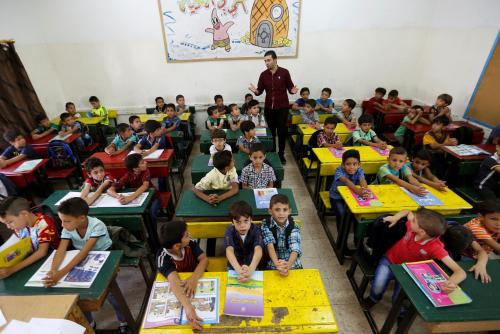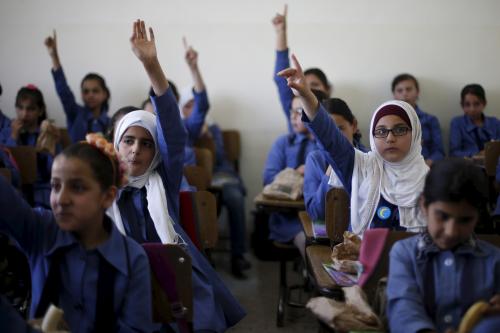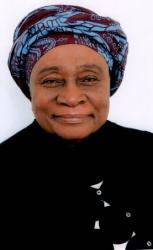“It promotes the change that comes from within.” This was how 28-year-old Stumai Kaguna described the impact that the Learner Guide program had on her life. An initiative of the Campaign for Female Education (CAMFED), the program promotes life skills development and creates pathways for girls transitioning from post-secondary school. Growing up in rural Tanzania, Stumai faced many challenges in her educational journey. Overcrowded classrooms, shortages of qualified teachers, and long distances to school were just a few of the obstacles confronting Stumai—and other girls like her—as they sought quality education in Tanzania. But then she was introduced to CAMFED, setting her on the path to complete her education and learn transferable 21st century skills such as leadership and critical thinking.
In a country where only 27 percent of girls complete lower secondary school and many drop out due to early marriage or pregnancy, developing life skills is critical. Through CAMFED’s program, young women who graduate from secondary school sign up for an 18-month voluntary commitment to become “Learner Guides” in secondary schools and deliver a life skills curriculum while also serving as role models to young girls. In exchange, Learner Guides receive ongoing training, access to interest-free loans, and an internationally recognized vocational qualification. Stumai used her loan to start a small shop on the outskirts of town and generated enough income from this endeavor to establish a thriving motorcycle business. What made the program a success and are there lessons that can be applied elsewhere?
Factors that contributed to CAMFED’s impact
A 2016-2017 evaluation found that improvements in reading among marginalized girls supported by CAMFED in Tanzania were more than double the rate of learning among girls in comparison schools, and in math, nearly five times the rate. A 2018 cost effectiveness study also revealed that, for all children supported through CAMFED, the impact was equal to an additional two years of schooling for every $100 spent. How was this achieved?
- Problem-driven grassroots approach. When CAMFED began in 1993, it identified that the main barrier to girls’ education is poverty. The organization created programs that address this issue by focusing on the individual needs of the girl and developing support packages that respond directly to those needs. Learner Guides come from the same communities where they serve, and they understand the needs of girls, as well as the local languages, customs, and power dynamics. This allows them to create solutions to problems they understand.
- Robust alumnae network. The CAMA network is the alumnae association for CAMFED graduates. It began in 1998 and has grown to more than 138,000 members across five African countries that are committed to “dismantling barriers to education” and rallying the community to do the same. In Tanzania, the CAMA network is the primary source for identifying and selecting young women to become Learner Guides.
- Strong government partnerships. CAMFED pursues partnerships with government at all levels to support its programs. Establishing memoranda of understanding with the central government helps facilitate collaboration with decentralized government actors, such as district education officers. Representatives of ministries responsible for education and youth development help integrate programs within public schools and facilitate access to local resources. CAMFED’s relationship with district governments is strongest in areas where CAMFED has an established presence.
While these factors have contributed to the impact of the Learner Guide program, much progress is still needed to serve the unmet needs of millions of young women in Tanzania. To date, Learner Guides in Tanzania have reached 106,707 young women, but there are an estimated 964,228 young women of upper secondary school age who are out of school. Scaling effective elements of the Learner Guide program could help reach many more girls and offer pathways for more young women in their transition after school.
Learning from Tanzania’s experience
To support and learn from Tanzania’s experience, the Center for Universal Education (CUE) recently launched a Real-time Scaling Lab with CAMFED in Tanzania. The lab will gather key stakeholders to collaboratively develop a scaling strategy for the Learner Guide program, iteratively test “change ideas” to strengthen the process, and use real-time data and learning to inform the scaling journey. The Real-time Scaling Lab in Tanzania will share scaling challenges and lessons learned, promote adaptive learning approaches, and contribute to the global evidence base around scaling quality education interventions.
Growing the volunteer-led initiative to new areas of the country will require strategic and deliberate planning alongside the government. During the scaling process, there will be valuable opportunities to learn about what is working well, what could be improved, and how lessons might be shared with other countries implementing similar programs. For instance, how will CAMFED recruit Learner Guides in regions where the CAMA network is inactive? How should CAMFED best engage with district-level government representatives who are unfamiliar with CAMFED or preoccupied with other priorities? In what ways should CAMFED’s training model evolve to accommodate a growing number of Learner Guides? The Real-time Scaling Lab will investigate these and other similar questions.
Life skills are critically important in today’s rapidly evolving global economy. The self-confidence acquired by Learner Guides through their volunteer work with students—as clearly demonstrated by Stumai—facilitates their growth and development. In Tanzania, a strong foundation is in place to make sustainable progress in ensuring more girls finish secondary school with valuable knowledge and skills, and elevating the role of women through education and leadership development. The Real-time Scaling Lab in Tanzania is well-positioned to bring together diverse partners and drive forward sustainable impact. Achieving this, Tanzania will create a new generation of confident and self-aware girls and young women who will contribute to the growth of their country, from within.
The Brookings Institution is committed to quality, independence, and impact.
We are supported by a diverse array of funders. In line with our values and policies, each Brookings publication represents the sole views of its author(s).








Commentary
Improving learning while developing future women leaders in Tanzania
July 26, 2019